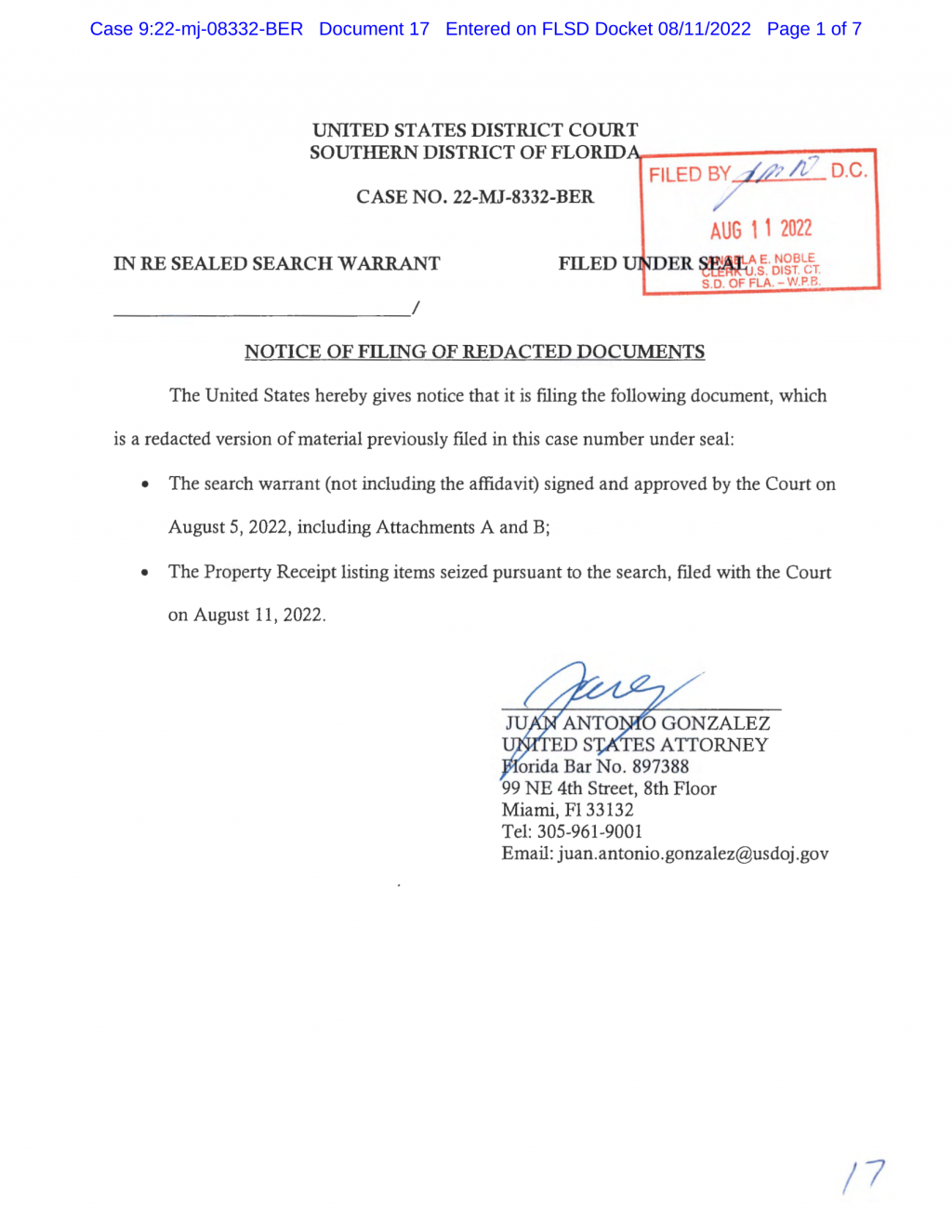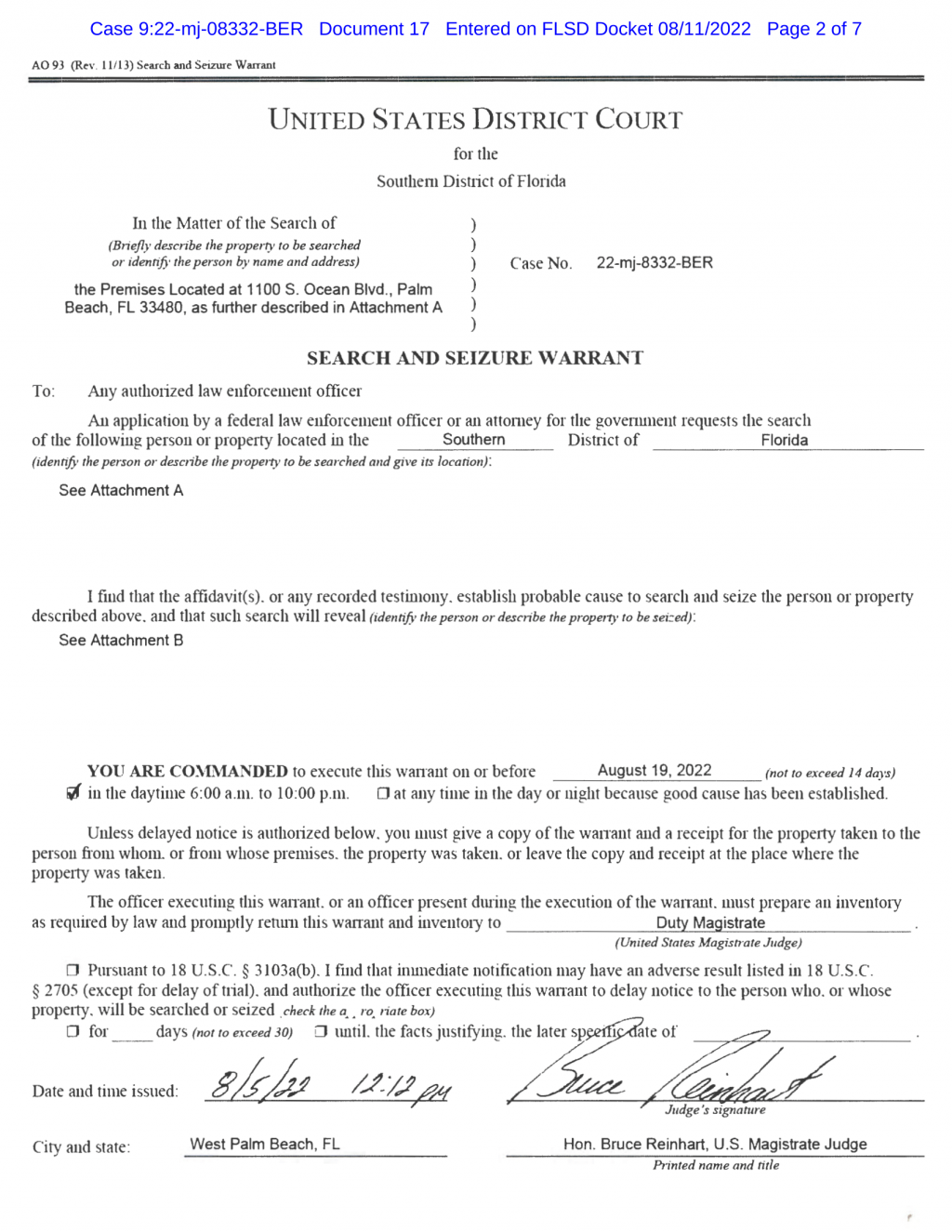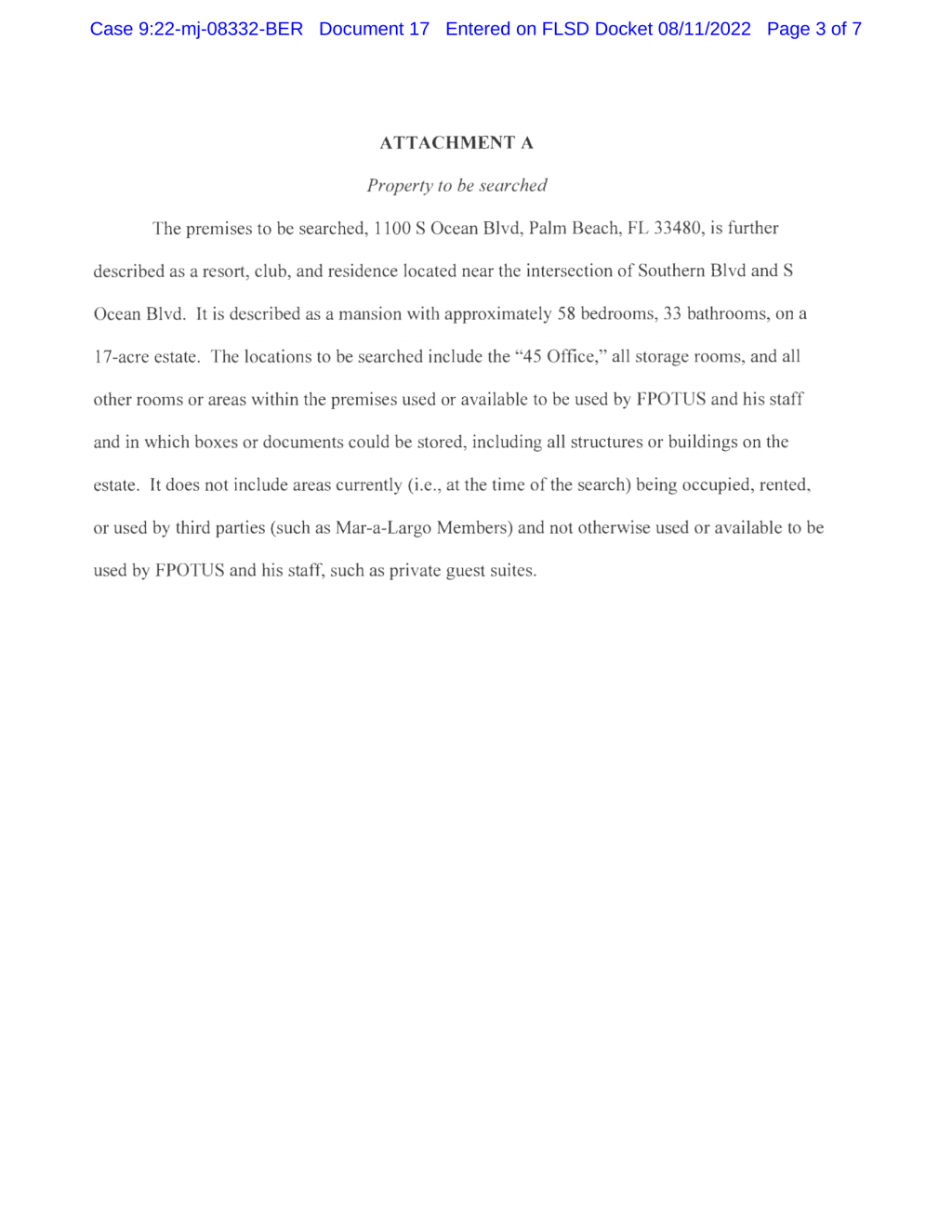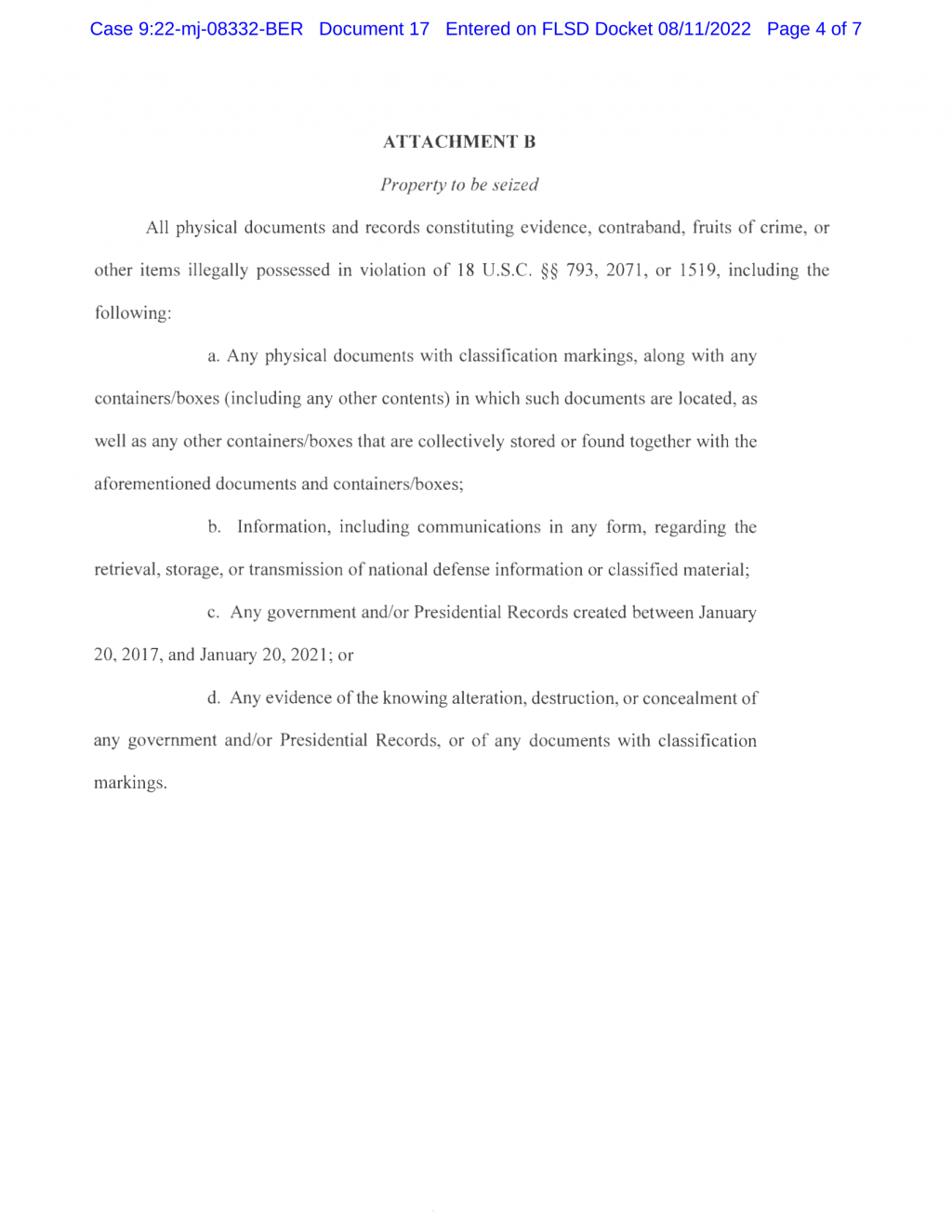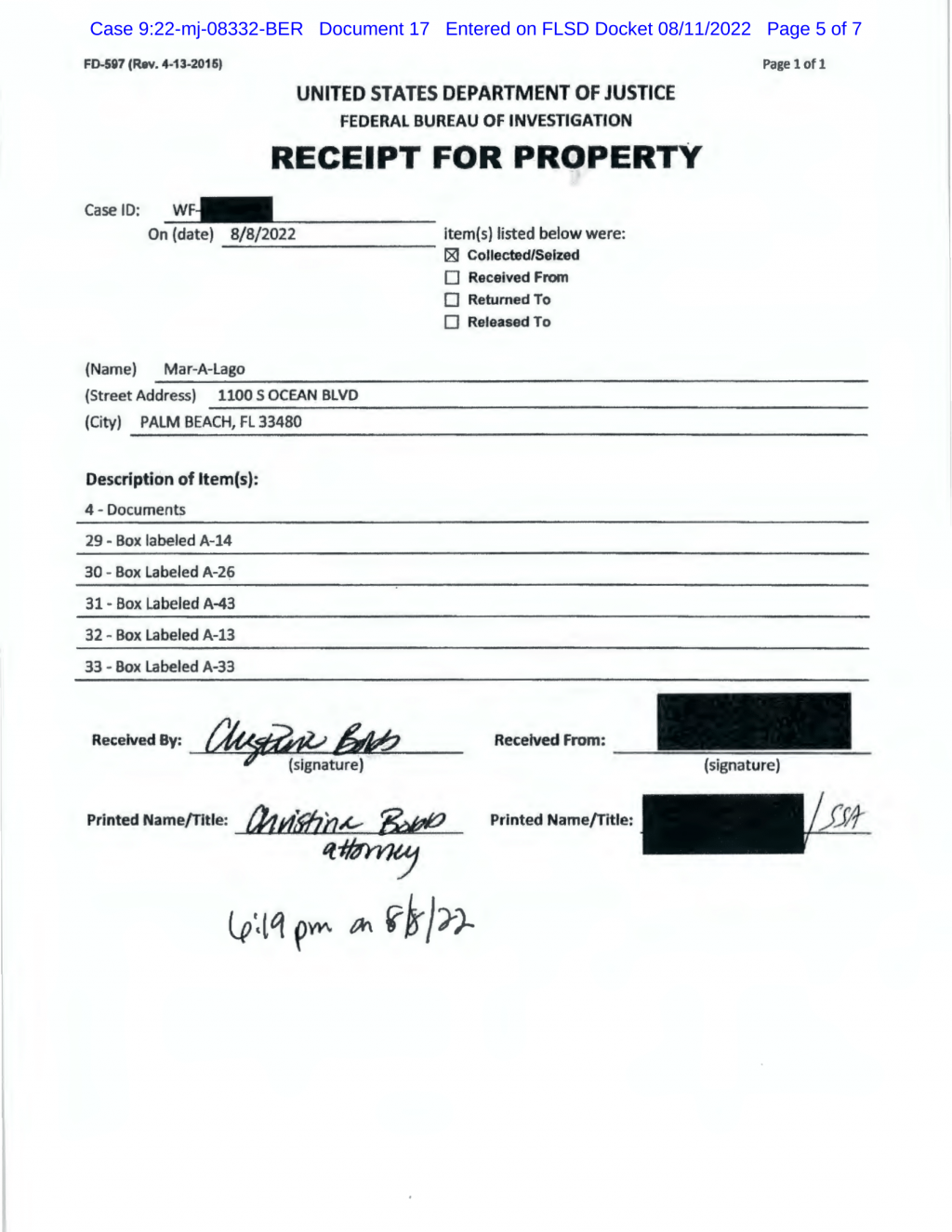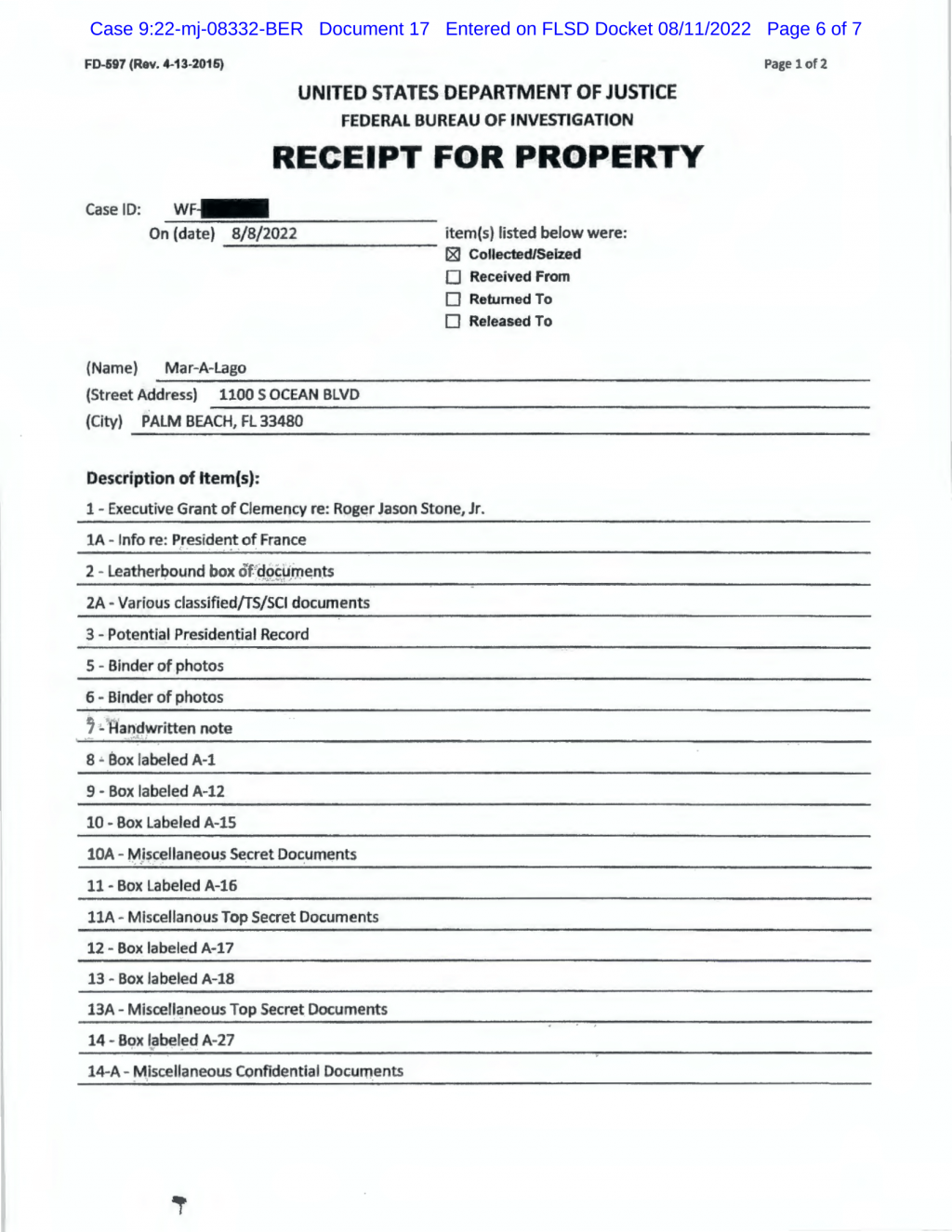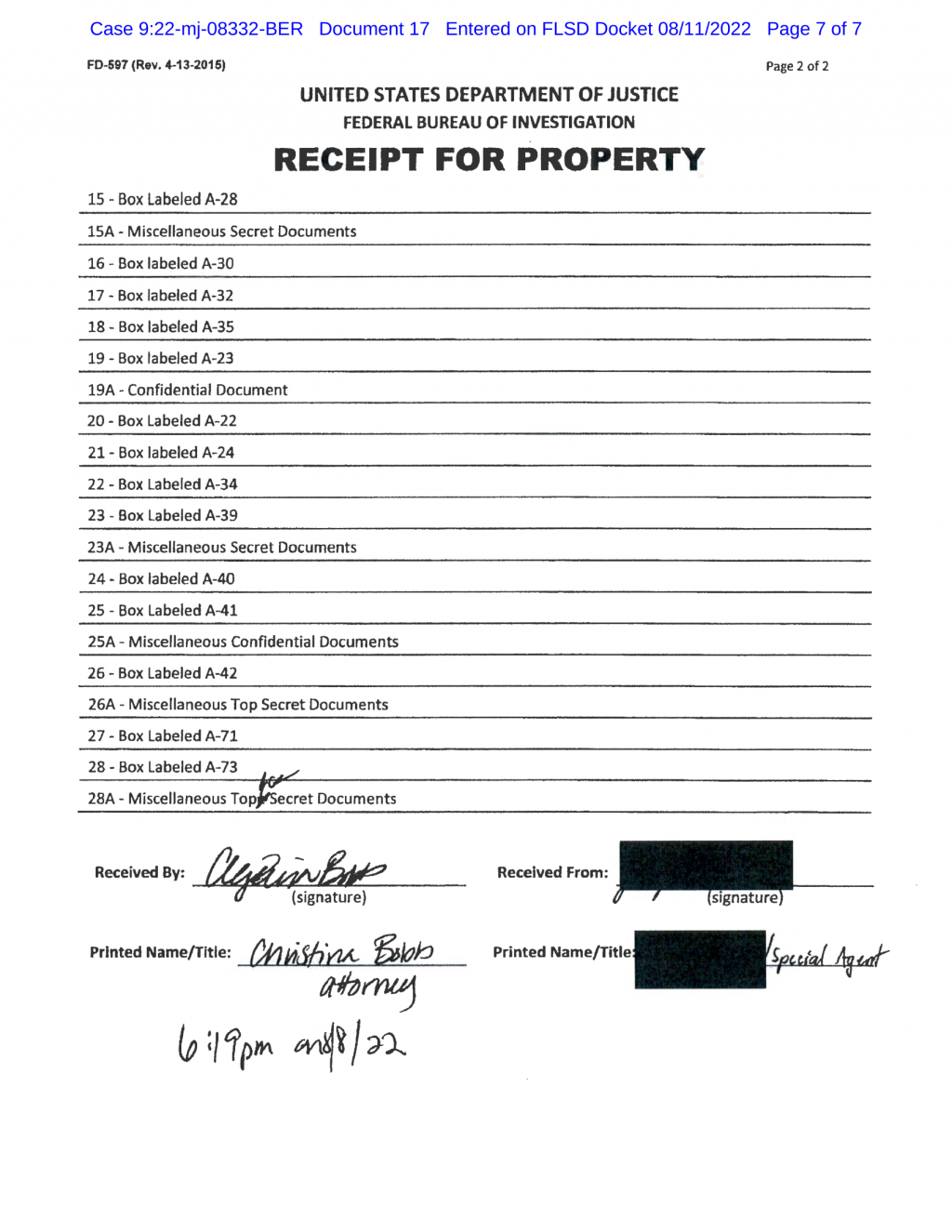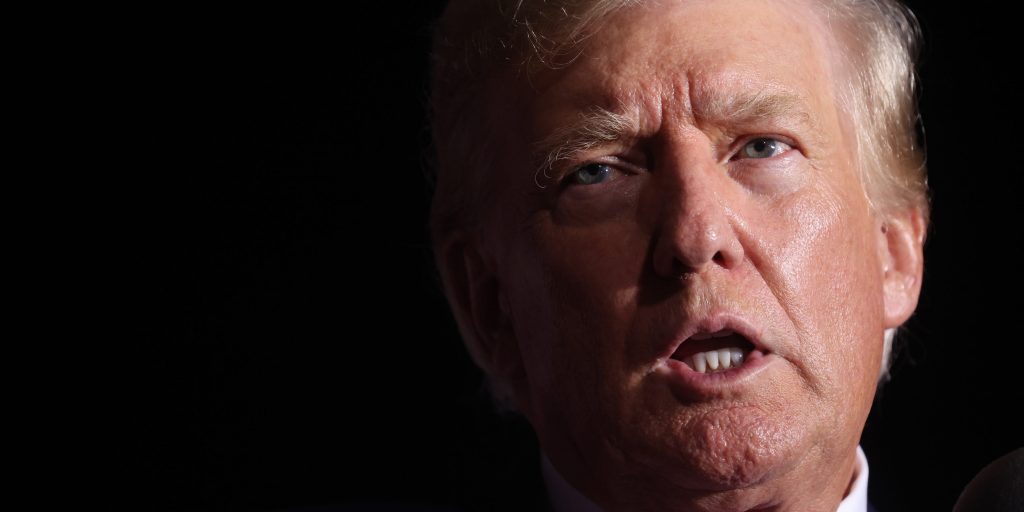- A Florida court unsealed the warrant used to search Trump's Mar-A-Lago home on Friday.
- It came after the DOJ and former President Donald Trump both said it should be public.
- It was released after intense public speculation over why the FBI raided Trump's home.
A federal judge on Friday unsealed the search warrant the Justice Department obtained ahead of the unprecedented search of former President Donald Trump's Mar-a-Lago home.
Magistrate Judge Bruce E. Reinhart released a copy of the warrant, along with an inventory of items the FBI seized from Trump's home and members-only club in West Palm Beach, at the request of the Justice Department.
You can read the full warrant and list of items seized here.
The FBI's search of Mar-a-Lago drew swift condemnation from Trump, who excoriated law enforcement over a raid he characterized as a politically-motivated "weaponization of the Justice System." Republican allies leaped to his defense, demanding details from the Justice Department and Attorney General Merrick Garland about a search targeting the home of a former president who has strongly hinted at making another run for the White House.
In the clamoring for transparency, a rallying cry emerged: Release the warrant.
On Thursday, Garland effectively called the bluff. Garland announced that the Justice Department had asked a federal court to unseal the search warrant, an unusual and extraordinary move that the attorney general tied in part to Trump's public statements about the raid.
"The Department filed the motion to make public the warrant and receipt in light of the former president's public confirmation of the search, the surrounding circumstances, and the substantial public interest in this matter," Garland said.
In court documents that coincided with Garland's address, the Justice Department said it supported the unsealing of records "absent objection by former President Trump."
Later on Thursday, Trump said on Truth Social that he supported the release of records related to the Mar-a-Lago search.
"Release the documents now!" he said on the social media platform.
Garland confirmed at Thursday's press conference that he had personally authorized the search and that his investigators had exhausted all other options.
"First, I personally approved the decision to seek a search warrant in this matter," he said. "Second, the Department does not take such a decision lightly. Where possible, it is standard practice to seek less intrusive means as an alternative to a search, and to narrowly scope any search that is undertaken."
Garland also said that the DOJ had established probable cause, the legal standard necessary to acquire a search warrant.
Trump had the ability to release the warrant and manifest of seized items himself. But he had not done so, instead seizing on the Justice Department's initial silence to suggest — without evidence — that the FBI was "planting" evidence at Mar-a-Lago during the search.
It has been widely reported that investigators wanted to retrieve documents sought by the National Archives from Trump's presidency.
On Thursday The Washington Post reported that the FBI was looking for secret documents describing the US arsenal of nuclear weapons.
